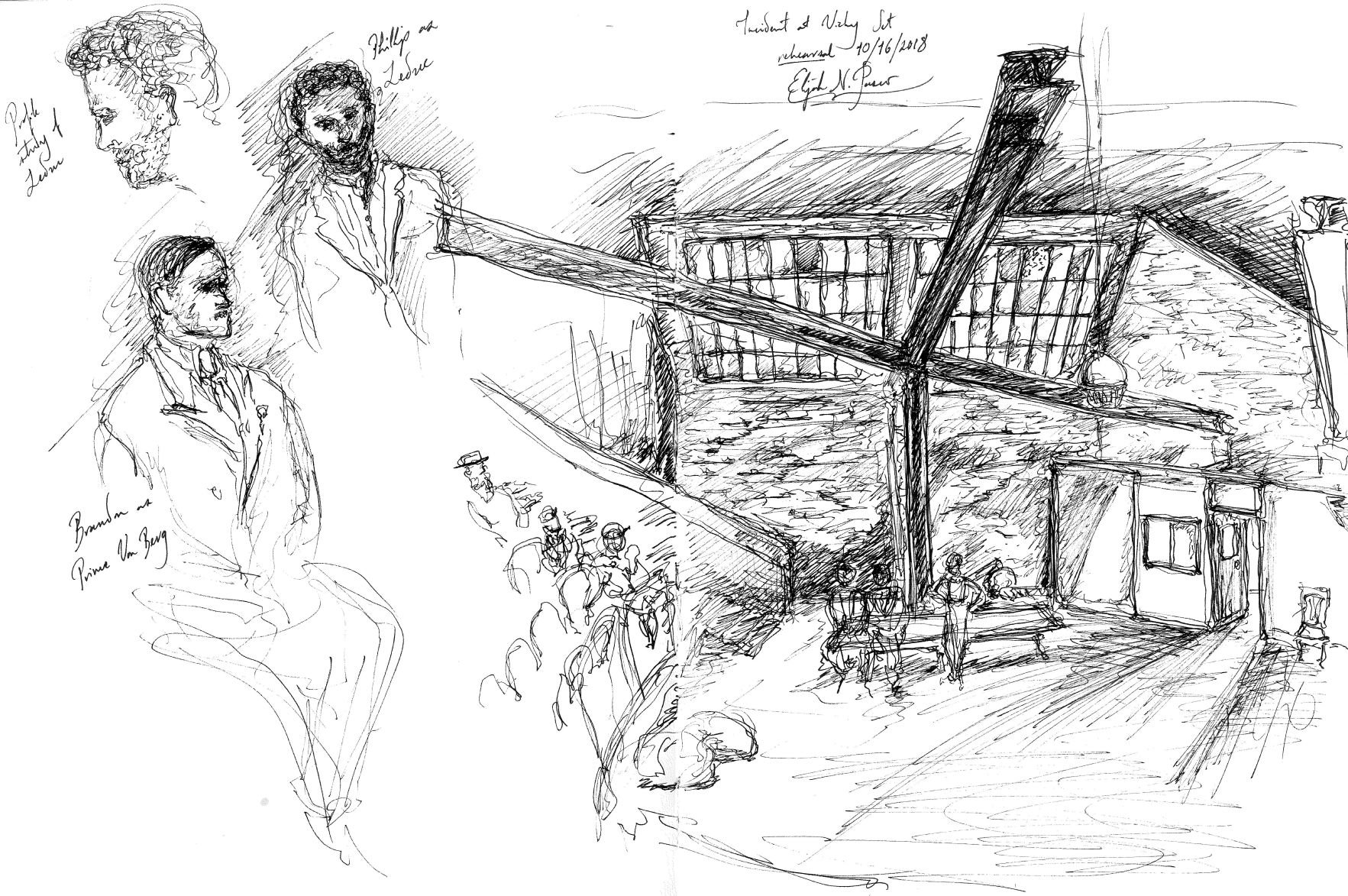
The career of playwright Arthur Miller (1915-2005) was at times political. “Surprisingly, audiences will relate more than they think,” says Fried-Harris. All the actors I spoke to marveled at the way this play speaks to our own time. Humanity might change from generation to generation, and yet there remains a visceral recognition of human experiences that are relevant and true. Prince von Berg, played with great sensitivity by local musician and actor Chris Devine, sums up that reality succinctly: “What one used to conceive a human being to be will have no room on this earth.” After the systematic rounding up and extermination of between 11 and 20 million Jews, Serbs, Poles, Russians, Roma, homosexuals and disabled people, is it possible to feel the same about humanity? One thing that Nazi Germany taught the world was that sometimes events can change not only history, but also humanity itself. It’s hard to push back when you’re already so far downstream, and it’s important to not get so caught up in your own life that the world has changed without your even noticing.” “It’s a timeless theme,” Terounzo says, “because people have to keep society in check. Similarly, Mike Terounzo describes his character, the electrician, as “a conspiracy theorist who doesn’t trust the government.” One of the most telling lines he delivers from his soapbox is, “You should try to think about why things happen.” “He has an understanding of what’s going on and he’s completely terrified,” says Payne, who described how he tries to infuse his body language with the “manic energy” of his character. Her cool assurances might seem more reasonable in contrast to some of the more heated responses, such as Cole Payne’s painter. Human psychology is to follow the crowd,” he said.Įpstein, graduating in May and participating now in her seventh GCC production, plays one of these characters, an actress who “… has a lot of pride and just doesn’t believe this could be happening. “It happens in lots of little steps, and this play is about one of those steps. “You don’t just go from 1939 Germany to the height of the Nazi regime,” explains Will Bliss, who plays the German major. Miller’s play begs the question, how long should people have faith in the staying power of normalcy before reacting to what appear to be horrific subversions of it? How long should we trust events and people to continue functioning in predictable ways? Parts of his character’s “very extreme emotional arc” were challenging in that his character responds so differently than he himself would, he said.įor him, the dynamic amongst the characters, some justifying what’s happening, others remaining in denial about it, feels emotionally truthful.

“I’m not going to do that,” she says mysteriously, “but I’m going to do another trick instead.”īill Wieliczka (Ferrand the café proprietor) also spoke of “the multiple layers of discrimination and dehumanization” that occur in the play. The others talk at me, but not to me.” Her character was one shifted to be female and apart from that change, Harris-Fried says that the script calls for her to do back flips across the stage.

Sam Harris-Fried says of her character, the gypsy, “I am an outsider amongst outsiders. “The emotional charge of the lines doesn’t change,” however, according to Corinne Epstein, who plays the actress.Īlthough the 10 detained characters share the vulnerability of their situation, even amongst them biases appear.

The characters represent different walks of life and social classes, and although Miller wrote the play as an all-male cast, Geha has changed some of the roles to female, the 15-year old boy, for example, now played instead as girl. As they wait their turn to be questioned, conversation ranges from the common to the profound, touching on questions of identity, culture, humanity and responsibility.
#Lost masterpiece of arthur miller incident at vichy full#
Set in 1942, during the Nazi occupation of France but before the full horror of the Nazi agenda was known, “Incident at Vichy” dramatizes the rounding up of 10 French citizens who react to their ominous situation in a variety of ways. If booking a flight across the pond to see it is inconvenient, however, fortunately for you this timely play can also be seen at the Sloan Theater in Greenfield Community College April 14 through April 22.Īs expected, Director and Professor Tom Geha, his students and other local actors have approached their production with energy, creativity and thoughtful, theatrical potency. This week Arthur Miller’s 1964 play “Incident at Vichy” opened to rave reviews at the Finborough Theater in London.


 0 kommentar(er)
0 kommentar(er)
